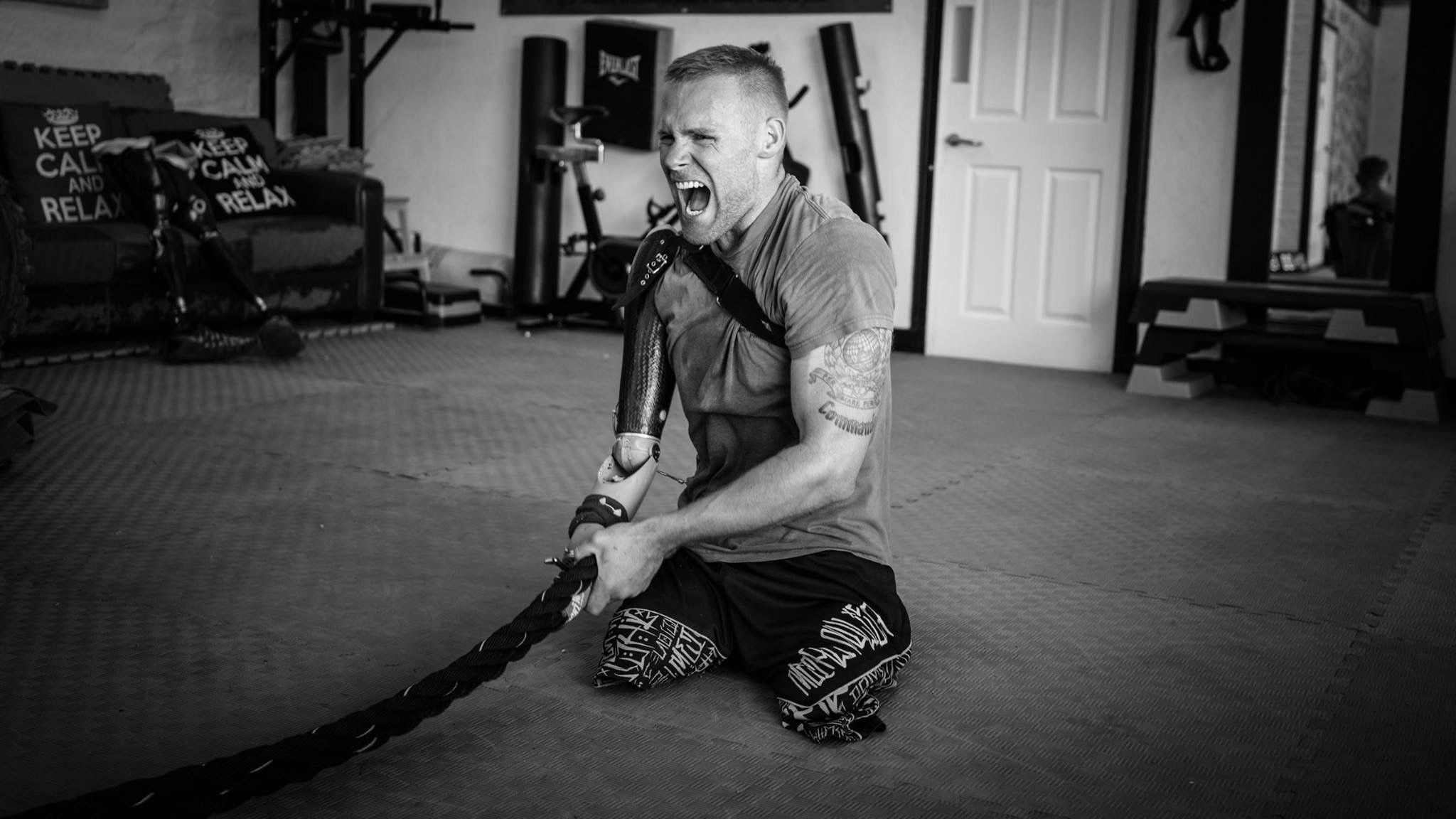On Christmas Eve 2007, Royal Marines Commando Mark Ormrod was on patrol in the Helmand Province of Afghanistan when he stepped on and triggered an Improvised Explosive Device. This resulted in both his legs being amputated above the knee and his right arm amputated above the elbow. Since then, Mark Ormrod has become an internationally acclaimed motivational speaker, a sponsored athlete, performance coach, fundraiser for multiple charities and the author of the award-winning autobiography Man Down.
Placed in your circumstances, many would write off ever visiting a gym or participating in sport again. What motivated you to start being active after your accident?
In the beginning, my motivation was driven by both gratitude and curiosity. Before my injuries, working out and staying fit was a huge part of my life. Afterwards, I was acutely aware of how lucky I was to be left with one fully functioning arm. I recognised that it meant the possibility of keeping working out as a big part of my life. Once I healed, I was curious to see what I was still able to do. I decided to find out by visiting the gym and beginning to experiment. Admittedly, the first session was quite frustrating, but afterwards, I experienced the familiar rush of endorphins and realised it was something that I had to persist with.
What advice would you give people feeling anxious about starting the gym?
Sometimes, the best thing to do is to take the plunge and get your foot through the door. For many, this is the often the hardest part due to a fear of judgement. If you do feel judged or unwelcome at your gym, it’s definitely worth having a shop round to find the best one for you. Bring a friend to relieve your anxiety and to have fun with working out.
If you can’t muster the confidence to get to the gym quite yet, why not start out by working out at home? If you’re able-bodied there is no end to the amount of exercises you can do just using your own body weight, all available to find online.
How should first-timers best kick-start their fitness journey?
By having goals! A lot of people quit early on because they have nothing to aim for or work towards and so going to the gym becomes a chore. Before you set out sit down and write out what you want to achieve, then put a quick plan together and then get out there, get stuck in and make it happen.
How can people overcome others’ doubts?
Overcome other’s doubts by using these as fuel to prove them wrong. I have done this throughout my life, particularly when things get tough. It does not matter how the deck may be stacked against you: if you fix your mind on the objective you will achieve. Go under, over or around any obstacles that might be in your way until you get to your destination. Bear in mind that it may take a little longer than anticipated – the key is to be consistent with your actions and keep moving forward.
How did exercise boost your confidence?
The endorphins released during exercise create a natural high which in turn increases confidence. Moreover, once you start seeing and feeling the results this too contributes – my own confidence increased by feeling fitter, stronger, faster and more capable.
Did it have any other psychological benefits?
It made me happier and more pro-active in my daily life. Furthermore, it gave me more energy, allowing me to perform better in my life both physically and mentally. I believe exercise to be the most under-utilised medication we have – it combats such an array of issues, including anxiety and depression.
If you need to talk – sign up to our free community to get answers to your questions from likeminded people and our trained digital mentors.
You can find out more about Mark Ormrod on his website or follow his Instagram: https://www.instagram.com/markormrod/














